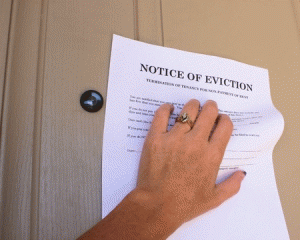Eviction Notices: What You Need to Know
 If you are a new landlord with only one or two properties, the eviction process can seem a bit confusing. It is important to understand what eviction notices are, how they must be handled, and when to involve the courts and a private process server.
If you are a new landlord with only one or two properties, the eviction process can seem a bit confusing. It is important to understand what eviction notices are, how they must be handled, and when to involve the courts and a private process server.
Types of Eviction Notices
If your tenant has failed to pay rent, you can serve them a 3-day eviction notice. If a tenant has broken the lease in some other way, you must serve them a 7-day eviction notice with right to cure. If the tenant pays their rent, fixes the lease violation, or leaves voluntarily, there is nothing more that can be done at that point. Both types of eviction notices can be posted to the door or given to the tenant listed on the lease by the property owner or any other individual. A private process server is not necessary, although it may be a good idea if you think a tenant might deny ever having received the notice.
Eviction Papers
Eviction papers are a different story. If your tenant does not comply with the eviction notice, you will have to file a complaint with the courts to have them removed. When you file this complaint with the courts, the eviction papers notifying the tenant of the court action must be served directly to them. A private process server that is licensed and registered to work in your area is the best option for this.
If you are in the process of an eviction and need papers served or you need help with the process, contact us today for more information about how we can help.
